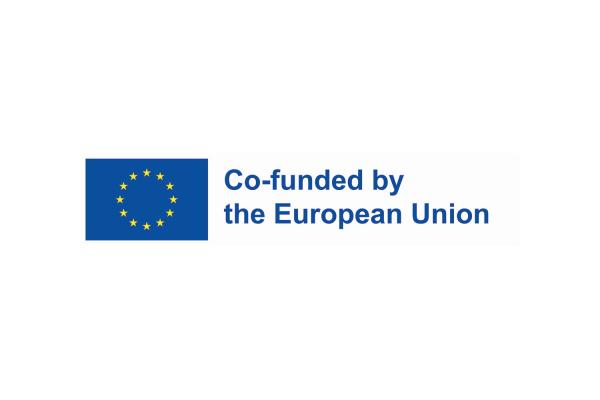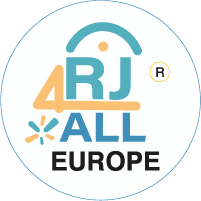

Project Name: Restorative Justice for Restorative Communities
KA153-YOU – Mobility of youth workers
About the project
The aim of the Restorative Justice for Restorative Communities (RJRC) project is to increase knowledge and enhance the use of best practices in the field of restorative justice and to make them more homogeneous at European level, as well as strengthen the skills and awareness of civil society actors contributing to its implementation in several Member States. The consortium has recognised that restorative justice has the potential to serve as a tool for not just improving individual-focused restorative practices, but also for fostering the growth of more resilient communities.
The RJRC aims to address the need to better frame the restorative justice activities, increasing knowledge and the solidity of skills to be acquired. Along with this, the project will seek to become the driving force for a pioneering cooperation process on European organizations that will create partnerships for future projects dealing with the more practical side of restorative practices.

Background
Restorative justice has gradually made its way into the European debate. On one side this paradigm shift is driven by the urgency to rethink the concept of punishment from a less punitive and more repairing perspective in order to recreate the bond that the crime or injustice has broken; on the other side, restorative justice became a much-needed avenue because the penalty, in the strict sense, proved to be insufficient and sometimes a counterproductive tool to combat some crimes or problems that arise today.
The United Nations Organization has been promoting restorative justice as a central part of the penal system; the handbook on restorative justice programs (now in its second edition in 2020) constitutes a key formal element, as well as a general indicator of effort, in promoting this practice. In Europe there have been numerous initiatives that put forward the discussion of restorative justice in Member States. The Directive 2012/29/EU became the first ever legally binding document concerning restorative justice and its implementation in the EU Member States, while in 2020 the EU released its “Strategy for the rights of victims 2020-2025”, highlighting the benefits of restorative justice and the role it can play in empowering victims. In this perspective, the European Forum for Restorative Justice (EFRJ) and its immense role in promoting restorative justice cannot go unnoticed. Today it is one of the most influential non-governmental entities at the continental level on the theme of justice, and constantly dialogues with the European institutions, the national judicial systems and the academia.
Many European countries, within their own borders, have made interesting steps forward, however the situation is still patchy. Along the way, it became evident that the approach to restorative justice, can be understood as a process not only judicial, but also civil and social. This means that the application of these same practices is closely connected to the work of organizations of civil society. For this reason, their function and contribution are essential so as to prevent the principles of restorative justice remain only on paper, but make Europe pioneer in bringing life to restorative justice.
Objectives
The main objectives of the project are as follows:
- investigate the state of the art in restorative justice, mapping the good (or innovative) European practices developed by individual member states, and determining a mode of exchange;
- raise awareness and promote all the actors involved on the issue of restorative justice;
- support already active civil society organizations, through knowledge-exchange in order to increase the quality of the services offered, as well as increase the skills of its operators on the subject, in line with the national and European standards.
Project Planned Mobilities
- Preparatory visit with 8 managers and directors of the partner organisations in Italy.
- Professional Development Activities with 14 social workers/restorative justice operators in Italy on 15-19 January 2024
Project Activities and Outcomes
- Online meeting on 04/07/2023
- Online meeting on 19/09/2023
- Preparatory visit at Cascina Castellazzo in Milan, Italy. Read our blog about this mobility: Restorative Justice for Restorative Communities: a Preparatory Visit to “Cascina Castellazzo”
- Online meeting on 19/12/2023
- 5-day Professional Development Activity (PDA) in Milan, Italy. Read our blog about this mobility: A Comprehensive Exploration of Restorative Communities in Milan
Further Recourses
Our Founder & Director, Dr. Theo Gavrielides, has written extensively on the topic of Victims Rights Directive.
Gavrielides, T. (2015). “The Victims’ Directive and What Victims Want from Restorative Justice”, Victims and Offenders Journal, Vol: 10. Issue 2. pages 1-22. DOI 10.1080/15564886.2014.982778
Gavrielides, T. (2016). “Repositioning Restorative Justice in Europe: The Victims’ Directive”, Victims & Offenders Vol. 11, Iss. 1, pp. 71-86
Gavrielides, T. (2019) Safeguarding and Empowering Crime Victims: Training manual: Restorative justice and the Victims’ Directive, London: RJ4All Publications. ISBN: 978-1-911634-09-6. DOI: 10.13140/RG.2.2.10019.12327
Gavrielides, T. (2017). “Collapsing the labels “victim” and “offender” in the Victims’ Directive & the paradox of Restorative Justice”. International Journal of Restorative Justice, Volume 5, Special Issue 3: Reimagining victims and restorative justice: the European Union, Canada and beyond, p. 368-381
Gavrielides, T. (2014), A victim-led criminal justice system for Europe: Addressing the paradox, IARS Publications: London. ISBN 978-1-907641-27-5.
Our Partners
Funded by the European Union. Views and opinions expressed are however those of the author(s) only and do not necessarily reflect those of the European Union or the European Education and Culture Executive Agency (EACEA). Neither the European Union nor EACEA can be held responsible for them.





